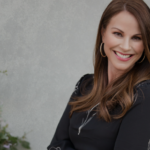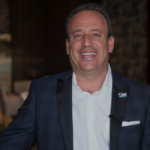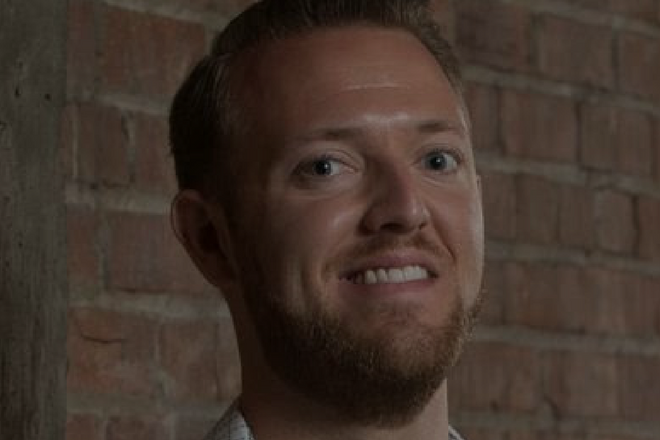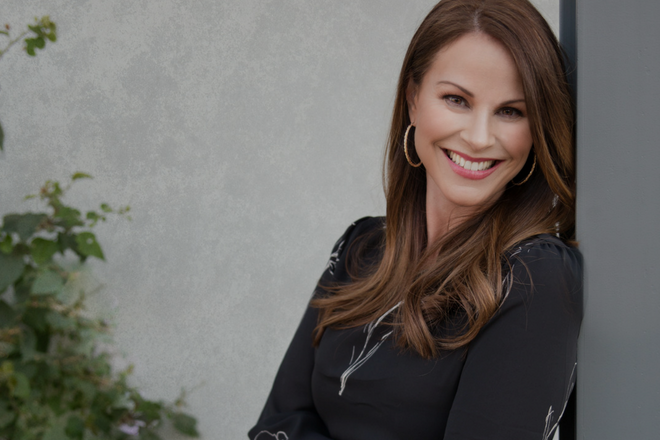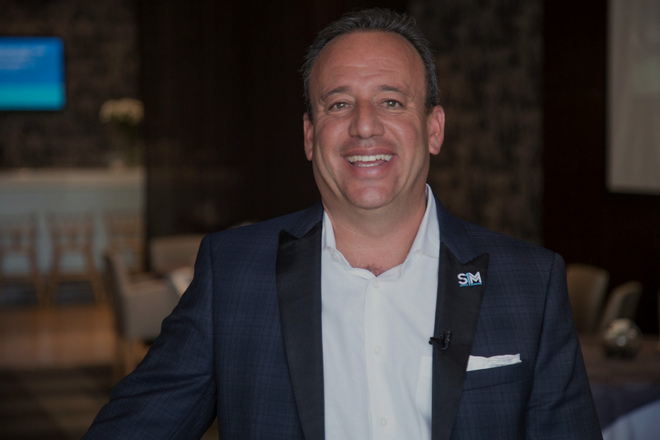“I think when you start, first off, first and foremost accepting that these shitty situations are going to happen, especially as an entrepreneur, you’re in kind of this high risk high reward roller coaster ride, and things get really good and sometimes things get really really bad. But these things are going to happen.”
Zach Ferres – CEO of Coplex; Dealing with failures; Finding the lessons in darkest moments; the realities of a startup; Building viable ventures; Growing companies from idea to seed funding.
Segment 1: (Length :04:00) – General Updates; Introduction to Zach Ferres; His start with Coplex; On selling his first company
Zach’s finer points:
“So I was running a company through high school, through college, and we were doing website hosting and software development and ended up selling the company in 2011, just actually right before officially graduating college, so that was an interesting time of my life.”
“Sold the company, after 9 months, we’ll talk a little bit about this, but sort of got pushed out of my own company and was really looking for the next thing to do.”
I was in Phoenix, I had just moved from Ohio. I moved my team of 12 at the time, we all moved out here together in hopes to work together at the new company that acquired us and stay there forever and turn it into an amazing, successful venture.
“Unfortunately, it didn’t quite happen that way, and after 9 months it was, it put me in this really interesting situation where me and my, pretty much my entire team of 12 were trying to figure out what the hell we were going to do next. Like, were we going to stay in Phoenix? Were we going to leave? Were we going to go back to Ohio? What are we going to do?'”
“And that was actually when I ran into Ilya at a young entrepreneurs meet up group thing I called impact showcase.”
“I actually met him at the White House, coincidentally, but we were hanging out at the conference and a bunch of like, it was a super humbling experience, so many like really young, successful CEOs and entrepreneurs were there, and I bumped into Ilya, shared my story, and he’s like, “hey, we need help”, why don’t we find a way to bring you on?”
“He was looking for a CEO at the time, looking for some leadership and eventually CEO, and I was looking for something to do and something for my team to do so we could all build something together. Timing was really good, and Ilya decided to take a chance with us.”
On the Acquisition of his 1st company: “Yeah, so I was 24 when all this happened. It was one of those moments where you very quickly realize what’s really important. A lot of people get into entrepreneurship and think it’s all about the upside, and all the money that you make, and you pretty quickly realize that what’s really important is the people that are around you, and it was a pretty humbling experience when we got the acquisition offer.”
“We had an office in Columbus at the time, and many of the team that still work with me today actually will remember this day, but we got together at our office in Dublin, Ohio and had one of my mentors, James Rories come and join us, he’s actually my executive coach to this day, and the 12, 13 of us were sitting in a room together and I basically had to explain to everyone what just happened.”
We just got an acquisition offer, what does that mean, wow will that impact us, and I really wanted to get collective buy in from the group to do this. If we wouldn't have gotten buy in, we would not have sold the company, but we sat in the room together for a couple of hours and talked about it and decided to do it.
“It was incredible because everyone except for one of my team members decided to make the move, to actually pack up and move to Phoenix. Some of them were, I mean my good friend Tobias put college on hold and moved to Phoenix. We had people, one of our team members had a wife in Ohio who didn’t want to move, he moved without the wife, so that was an interesting one.”
“We had one that sold his house and moved across the country. We had people leaving good paying jobs to move across the country. It was an incredibly humbling experience to see how many people believed in me at 24 enough to pack up their shit, sell their houses, leave their wives, and go move across the country.”
“It was pretty amazing, and after things didn’t go as planned, I did take a lot of that weight on my own shoulders. It left me, um, certainly I was worried about myself. I was, I had nothing, I had a couple hundred dollars in the bank after all of this got done, after paying tens of thousands of dollars in legal fees to lawyers.”
“It was, personally it was not a really good time for me, but all of that came really second to taking care of the team. It’s like what, um, we had all of these guys and gals that were out here that believed in us, believed in me, and we were all looking for something to do. It was a pretty extreme weight on my shoulders to make sure everyone was taken care of.”
“So, after selling the first company in 2011 we were there until, most of us were there until about October, November of ’11, and that’s when I ment Ilya and the Coplex team.”
“I officially came on board Coplex in January of ’12, and it was incremental. I think at first it was like, four of us that got hired, and then it was a couple more, and then a couple more, and a couple more and it got to the point where almost everyone that was originally involved in the move from Ohio ended up coming into the Coplex mix, with a couple minor exceptions.”
Segment 2: (Length :08:00) – Talking with Zach; the process of Coplex; Going from idea to seed stage; The realities of a startup.
Zach’s finer points:
“Right so in 2000 April of ’16, which this was also a moment that was really created out of a failure, but it turned into something that was actually really positive for me and for the company, but in April of 2016 I actually bought out the partners.”
“So we did a management buy out, erased some outside capital, took on some debt, and did a management buyout in ’16, so, in doing that it took out the previous business partners, which Ilya is still a really good friend, he’s one of our board advisory members, and I have a feeling we’ll be doing a lot together.”
“He was actually one of our most successful ventures to come through Coplex, coincidentally, with Pluto TV.”
Things were all, it was all on very good terms, it was kind of a mutual management buyout that benefited both sides of the table and when that happened, old partners left, brought in a couple new equity investors, but, I went from sort of interim CEO/partial company owner to majority company owner in April of '16.
“That’s been kind of the international stereotype of what a tech founding team looks like, and after being involved and starting hundreds and hundreds, literally hundreds of hundreds, of technology start ups over the past ten years of my life, I very quickly realized that, first off, that’s not what the only, there’s another type of founding team that a lot of people ignore. I’ve always been a big believer that you can start a tech company if you’re a little bit older, you’re not a coder, and you don’t live in San Francisco.”
“So it’s just now, it’s something we’ve been passionate about for a long time, and really a lot of the most successful tech start ups that we’ve helped build, even before Coplex, the typical founding teams were in their mid 40’s, early 50’s, they were industry experts, they couldn’t write a line of code if their life depended on it, and quite frankly they weren’t in San Francisco, or anywhere around San Francisco.”
So, after being around this for so long, we realized that there's a massively underserved market. No one is helping people like that get into the tech game. So that was really what inspired the current direction of Coplex. It's really providing a platform for these non-coding industry experts outside of SF to start great tech companies.
“So if you look at like Y Combinator, hands down the most successful start up accelerator in the world, they’ve created over like an 82x return on capital from like 2005 to 2014 or ’15, it’s probably one of the highest returning venture investment vehicles that anyone has ever seen anywhere.”
“So, a lot of wild success stories out of YC, but what they do is, you know, you go to move to San Francisco, and they work with hacker types. I think the average founder age for YC is late 20s or late 30s, if I remember the statistic, and they basically bring in coders and solve for business. So, they teach coders how to be business people.”
What we do is almost the opposite. So we're working with the industry experts and we solve for technology, so we've kind of flipped it the other way.
“Both work, by the way, you can, I mean there’s a reason why YC has been as successful as it has been with the creation of companies like AirBnB and Dropbox. They’ve certainly done very very well, but they’re just solving it, you know, they’re solving for a different side of the equation, so we really realize that you can, you know, there’s a lot of success that can be created the other way.”
“In either case, yes, if you’ve got the technical side, you need to supplement with the business side. It’s highly unlikely that you’ll be able to build a successful tech company with just coding experience. You need to understand the problem space. And then vice versa.”
It's an 8 month program. We charge a fee for the program. It's not inexpensive because of all of the support that we provide during the 8 month program. We also take a split, a small equity percentage of the company.
“The fund, the reason Coplex Ventures exists is to, for the companies that spin up well, we actually get refusal rights and a discount to lead the seed round from our venture fund for the ones that graduate and we see, we decide we want to place a bet on.”
“So the founders come in at the idea stage, sometimes even before, we call it the problem stage. . . a good example would be Frank the oncologist. He’s been an oncologist his whole life, entrepreneurial guy, but became a partner in an oncology practice, had a successful exit, sold it to a regional hospital, and after being in the oncology space for 20 years, he realized there’s some serious problems with like matching cancer patients with clinical trial programs.”
“So, for him it was just identifying the problem. He didn’t really know like, okay, how are we going to go solve this? He didn’t even really understand or know what the solution would be, but he had a feeling that tech could be used to solve this pretty significant problem with matching cancer patients with these programs that are available.”
So, when Frank comes in, he came in with really at the identified problem and not even solution, so we're dealing very early stage, and the 8 month program is designed to take people like Frank from hey I've got an idea or I've got a problem that I think can be solved with tech, and at graduation 8 months later, we're getting them to what we call venture ready.
“Technically it’s called seed ready, so we get them to the point where they kind of check all of the boxes necessary to go raise an actual institutional seed capital round.”
“So there’s some education components, we do some market testing, we sort of identify that this problem is real before we start building a bunch of stuff, it’s kind of the lean start up approach. Then we build a minimum viable product, bring it to market. We run some little incremental experiments to see how the market reacts to certain products that we bring to market. We learn from the feedback, the quantitative/qualitative feedback, and then we iterate.”
“We might expand the product, add some features, change some things, and over the course of this 8 month program, we’re iterating on the product, you know, three, four, five times, learning as we go.”
“Each iteration we’re bringing in a new customer cohort trying to grow the revenue base, and the goal is that we get them to somewhere around $10k a month in recurring revenue, or $100k in annual recurring revenue before they graduate.”
It's very difficult to do because it's hard to systemize the journey from idea to exit, so there's a lot more custom stuff that's going to come up, but if you go stage specific and you go, you know, there's a specific type of tech company we help build, with a specific type of founder at a very specific stage, and if you focus that in enough you can do it at scale.
“That’s really what we’re betting on from the accelerator side, is to be able to take this around the world and help industry experts in countries all over the world get into tech.”
Segment 3: (Length :10:00) – Dealing with failures; Finding the learning lessons in your darkest times.
Zach’s finer points:
“So incorporated in every one of my call it biggest failures, there’s also what’s been some of my biggest learning lessons and growth opportunities. I think they are just an inherent part of the journey. There’s a few of them that come to mind. We sold our first company, we ended up never getting paid a penny for the sale of the company. It involved, ended up ending in a not so good place. Lawyers were getting involved, and things got pretty messy with that.”
“Another big one was we, which by the way that one ended up leading to Coplex. I think the next one on the journey was dealing with a pretty significant lawsuit with one of the wealthiest families in California that we did a project with. It was actually a few years before I was with Coplex. We ended up getting, we did a project before I was with the company that apparently we, you know, it was quote on quote finished and delivered and then about 3 months before statue of limitation on contract law we ended up getting a letter saying that they wanted all of their money back for the whole project, and it was a pretty big project.”
“So, ended up spending, it ended up costing a little over a million dollars from one lawsuit. It almost bankrupted the company. That actually was a big learning lesson, but that actually led to me taking ownership of the company. So again, it was one of those really terrible moments that ended up turning into something better.”
The first one that happened I went into a pretty dark state of depression pretty much. It was, I remember a few weeks after I was basically at home, I had no money, I had no job, I had given everything away that I spent five years creating, six years creating, and my whole team was trying to figure out what they were going to do, and it was a pretty dark time.
“Dealing with lawyers and the, I remember like coming to and realizing I was like laying on the floor of my shower in my bathroom, you know, just crying and couldn’t figure out what to do. It was pretty bad.”
“I remember talking to my dad, I was thinking about moving back home. It was a pretty rough time when all of that unfolded. I almost considered, I remember looking, going on like job board sites and looking. I even thought about back into like IT or computer programming and just taking a job. It was a pretty bad time.”
“I remember I had a couple hundred dollars in my checking account, and we, I drove with my girlfriend at the time, we went up to San Francisco. Actually drove. We didn’t really have any money, so, I did the drive over there and that’s when I got a call from my mentor from college, a good friend of mine, Jason, and he’s like, hey, you’ve got to come to this thing in Washington DC.”
It's his mentor and a really good group of entrepreneurs and CEOs, and he's like, you got to come make it out. I was like, dude I don't have enough money, I don't have enough to make it. So, I literally found a way to crash on his floor in the hotel, and scrapped together every penny I could and bought a plane ticket to get out there. That was actually when I met Ilya, but it was definitely really, a really tough time.
“Each time it happens you get a little bit better at it, but much like we talked about earlier, I’ve always been a systems guy, I enjoy systems. I’ve almost built a little system for dealing with this kind of stuff.”
“When shit gets really hard, one of the things I try to do is find the meat and find the bone, and really try to delineate between the two, and then use it as kind of some feedback on the direction and the decisions you’ve made in the past, see what you can learn.”
When you do this, you can take this really shitty experience and the example for me was just, you know, sold the company, didn't get paid, got thrown out of my own company. Twelve of my friends with no jobs, felt really terrible, completely broke, questioning the direction of my life and my career.
“Just all of these things that happened, but I really distill it down, and when you look at it, certainly yes, there are some really bad things that happened. There are some bad things that happened that you’re not going to really learn anything from, they just are. There are some bad things that happened that you can find some learnings in.”
“I think when you start, first off, first and foremost accepting that these shitty situations are going to happen, especially as an entrepreneur, you’re in kind of this high risk high reward roller coaster ride, and things get really good and sometimes things get really really bad. But these things are going to happen.”
“You have to just accept that this kind of stuff is going to happen in life, but when you take these things and you actually take a minute to just reflect on what actually happened, the facts of what happened, and you intentionally sort of divide it up into these quadrants: bad things that happened that there’s nothing to learn from, bad things that happened where there’s learning lessons, good things that happen where there’s learning lessons, good things that happen that there’s really nothing to learn from.”
When you kind of break it into these four quadrants and look at it more objectively, you can actually turn every one of these big failure moments into a growth moment and an opportunity for making yourself better.
“Segment 4: (Length :03:00) – Hustler Thought of the Day:
All first-time entrepreneurs should have someone like that to push them harder and help them navigate the early pitfalls of leadership. . . A good coach can turn raw talent into refined expertise or refined talent into renowned success. – Zach Ferres
GENERAL NOTES:
Zach Ferres – CEO of Coplex
Zach is the CEO of Coplex, a Startup Accelerator that works with non-coding, industry experts to start successful tech companies.
His is also a founding partner at Coplex Ventures, the VC arm of Coplex and a contributor for Entrepreneur Magazine.
Zach has over 50 publications and 9 honors and awards including: 20 people to know in Startups, 40 Under 40 Winner, Social Impact Award and America’s top 7 startup accelerators to name a few.
He went to Ohio Northern University and got his BA in Computer Science, Mathematics and Entrepreneurship.
Check out Zach HERE | Social for Zach: Facebook | Twitter
###
